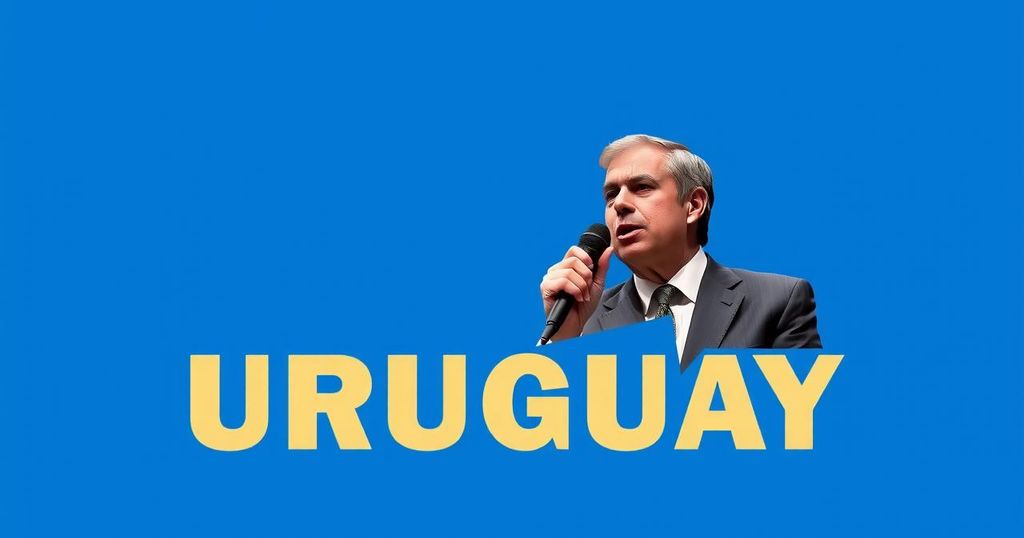Uruguay’s Presidential Run-Off: A Commitment to Democratic Coexistence

Uruguay’s presidential run-off featured candidates Alvaro Delgado and Yamandu Orsi, emphasizing democratic stability amid regional turmoil. Orsi secured 44% support in the general election, while Delgado, with 27%, aimed for support from third-party voters. Both candidates focused on strengthening the economy and pledged respect for the election results, highlighting Uruguay’s commitment to democratic coexistence.
In a presidential run-off held in Uruguay, candidates Alvaro Delgado and Yamandu Orsi faced off in a tightly contested race reflecting the nation’s commitment to democratic coexistence. The election took place following a general election on October 27, where Orsi, representing the left-wing Broad Front coalition, secured 44 percent of the votes, short of the absolute majority required to avoid a run-off. In contrast, Delgado of the ruling National Party finished with 27 percent but gained momentum from the votes of a third candidate, Andres Ojeda, who represented the conservative Colorado Party.
Yamandu Orsi, a 57-year-old history teacher, garnered significant support, notably from former President Jose Mujica, who is revered for his humble approach during his presidency from 2010 to 2015. The contest in Uruguay stood in stark contrast to the political turmoil in other Latin American nations, such as Mexico and Venezuela. Both candidates asserted their commitment to advancing Uruguay’s economy, with Orsi focusing on raising wages for low-income workers, while Delgado aimed at bureaucratic efficiency and enhancing trade relations with countries like China.
Both candidates pledged to respect the electoral process regardless of the outcome, aligning with Fernando Pereira’s sentiments from the Broad Front coalition, who noted the importance of valuing “democratic coexistence.” Former third-place candidate Ojeda remarked on the serene atmosphere surrounding the election, affirming that a foreign observer would not perceive it as an election period. This run-off exemplified Uruguay’s stability and democratic values amid a tumultuous regional backdrop.
This article discusses a recent presidential run-off election in Uruguay, emphasizing the significance of democratic values amidst contrasting political climates seen in other Latin American countries. The electoral process featured candidates Yamandu Orsi of the left-wing Broad Front and Alvaro Delgado from the conservative National Party. Their campaign strategies and voters’ sentiments demonstrate Uruguay’s democratic health and stability, reinforcing its reputation as a model in the region.
The recent presidential run-off in Uruguay showcased a peaceful democratic process, with candidates Alvaro Delgado and Yamandu Orsi promising to respect the election results and work collaboratively regardless of the final outcome. This election underscores Uruguay’s commitment to maintaining political stability and democratic principles, contrasting sharply with the electoral challenges facing its regional neighbors. The broader implications suggest a reinforcing of democratic coexistence, valued by both candidates and the public alike.
Original Source: www.aljazeera.com






